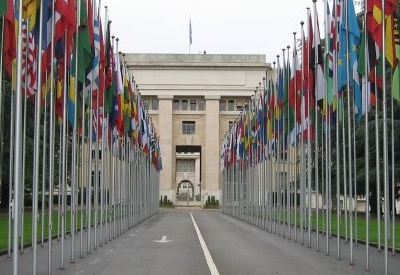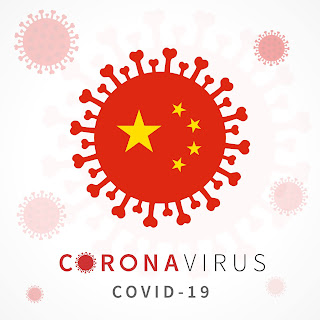All Roads Lead To Democracy
 | |
|
Keywords: International Regime Change, Syrian Observatory for Human Rights, Jus Ad Bellum, Jus Post Bellum.
Introduction
Regime change is a popular slogan that gets thrown around by public officials. This act is often associated with authoritarian regimes with questionable human rights records. Some scholars may view regime change dating to Jesus, who they see as a "social revolutionary" seeking, at least, a reprieve from Roman interference in Palestine. In the view of William Blum, The United States has been active in IRC (international regime change) beginning with China in 1949, while the latest incident, being the successful overthrow of Ukrainian President Viktor Yanukovych in 2014. Blum cites 38 successful ousters of governments during this period.1 Since the end of WW2, America has shared the burden of confronting authoritarianism and spreading democracy according to the pretext of each administration. According to the Penguin Dictionary of International Relations: "A regime is a framework of rules, expectations and prescriptions between actors in international relations. This framework is based upon recognition of a common perceived need to establish cooperative relations based upon the principle of reciprocity. A regime operates within a clearly defined issue area and behaviour patterns will be regulated through common membership of special purpose organizations. This membership will potentially be open to all relevant actors whether they are state actors or not." 2 This definition is a tidy opus of what individuals expect from each other, and, ultimately these precepts transcend the organizations that regulate our lives. It presents a good foundation for communication between state actors to operate in concert vis à vis trade issues, conflict resolution, or within their own borders on issues that may be national or regional. The core principles reflect the expectations of the individuals operating within political parties for their conceptions of what measures will lead to improvements in their constituents, organizations, and other international bodies that adhere to similar beliefs. Where status, equity, partnerships, and fair play typically affect decision making among actors, a current à la débandade in international relations exists since multilateralism became the dominant approach in a post FSU (Former Soviet Union) orbit.Yes, ideologues still favour doing business with other actors of the same stripes. Nation - states that do not align with their belief system is immaterial in a globalized market-village.
Freedom House has shone light on the diminishing role of democracy while noting the rise in focus of authoritarian regimes. Turkey has "by its own account captured 104 of its citizens from 21 countries over the last two years in a global crackdown on perceived enemies of the state." Correspondingly, the murder of Washington Post journalist, Jamal Khassoggi in the Saudi -Turkish embassy where Saudi Arabia (not admittedly) was complicit is a reminder of democracies struggles to gain a foothold in nation-states that traditionally lack human rights in the western sense. Russia and China are guilty of this practise as they spread out internationally through digital means. China's detention of Uyghur's in Xinjiang province, occupation of Tibet, and overt calls to invade and capture Taiwan demonstrate the shift in authoritarianism for actors seeking to expand their territory. Iran has spread its influence in the Near East and thus, presents a credible threat to democracy in this region. Iran proxies have supported the Yemeni Houthi's opposing the Saudi kingdom, while North Korea has remained vigilant in its nuclear program to elicit funding from the U.S. for survival. Word is that South Korea is in talks with the North to reopen the Kaesong Industrial Region to generate output truncated by UN sanctions. Kim Jong-un has stepped up control within his government to thwart any seeds of discontent since the passing his father, Kim Jong - il (17.12.2011.) The Six - Party talks ended in 2009 without any cessation in North Korea's nuclear ambitions. Indeed, the rhetoric and belligerence continues to the present- a hallmark of the Kim family. So, we sit with a reworked "Axis of Evil +1" in 2020 (Russia, China, Iran + North Korea) in my humble opinion. American foreign policy is still meek under Donald Trump as was the case during the Obama Administration. Opponents of the Obama Administration and scholars would point out the misguided policy of killing Muammar el - Qaddafi as counter intuitive with Islamic State forming a bloc in Libya. Iran has recently shot down a Ukrainian commercial flight with 57 Canadians on board who died with little recourse except to accept what Iranian officials offer in damages and inspections. Donald Trump's withdrawal from the Iran Nuclear Treaty brokered by the five permanent United Nations Security Members + Germany is unravelling with sanctions by the U.S. stirring an anti U.S. sentiments. Former Canadian Prime Minster Stephen Harper recently acknowledged that the only way to achieve peace in the Near East is through regime change in Iran. This is the most plausible of the four axis actors that I mention, and with a U.S. election in November, a suitable distraction to what ails Mr Trump- the impeachment proceedings and potential release of his financials.
Transition away from autocracy to democracy
The movement away from a dominant ancien regime to democracy, depends on the level of influence wielded by the drivers of democracy within the group seeking change. The actors within the group must have great influence to shift the movement towards democracy. Democracy provides the least conflict for change to achieve a peaceful solution sans a stalemate. And as Philip Roeder explains regarding Post - Soviet models, democracy provides a practical compromise between politicians that cannot achieve their particular goals.3 So, to elicit a meaning of democracy that transcends ideologies seems to rest on the individuals that are involved in the decision making process when considering regime change. Contemplating any form of government, the notion of "Groupthink"drives the goals and the conversation. In western based democracies, the use of committees, hearings, and free elections lend itself to pragmatism apart from ancien authoritarian regimes that are weighed down by Party ideology and rigid control of the electorate. For both forms of government, leadership in the strategic apex steers the ship, and a well developed civil service and military that support the groups doctrines, prevail. Hence, the benefits of a bicameral legislative body to enact laws to serve the greatest good derail the notion of regime change, apart from general elections.
Vilfredo Pareto (1848 - 1923), the Italian economist proposed the notion of 'Pareto Improvement' that seeks as an outcome, the greatest good for the many with few being affected detrimentally by a policy or outcome that is connected with the allocation of goods. Therefore, if we consider the Iranian governments decision to hike fuel prices approximately 50% in late 2019, American sanctions affecting energy exports by 250,000 BPD, the negativity regarding the Iranian shooting down of a Ukraine civilian flight, and the protests opposed to the cleric, Iran appears to be a candidate for International Regime Change. Reports through the IMF indicate that inflation may top 35% this year while the economy will contract up to 9.5%. Given these particulars, Iran may be susceptible to internal dissent leaving them vulnerable to U.S. interests. Donald Trump in a weakened position may find favour answering the missile attacks in Iraq. Inside Iran, hard line cleric - Ebrahim Raisi is poised to replace Ayatollah Ali Khameni, providing, more or less, the status quo to the political landscape. A recent list of military powers (Business Inside) found Taiwan at 24 and Canada at 25. Authoritarian regimes in the top ten consist of the usual actors in China and Russia, a formidable duo that invest approximately 200 billion and employ, 6, 279,000 total military personnel. Comparatively, America has a military budget of 647 billion with 3, 586,000 total military personnel. All figures from 2018. The Assad regime of Syria is long past due for regime change dating to Hafez al - Assad (1971 -2000) and continuing a brutal campaign by his son, Bashar who learned a thing or two about despotism. The Syrian Observatory for Human Rights (SOHR) estimates that 560,000 deaths have occurred since the start of the war in March 2011. Yet, Assad prevails with Russia and Iran as proxies. Recently, the Duke and Duchess of Sussex have tried to modify Britain's Royal Family protocols (Harry & Meghan's attempt at regime change) to what duties are permissible and the level of freedoms that are available to Royal family members, and have found that you are either in or out- kind of like First Past the Post.
Conclusion
Today we are at the crossroads of a 'fourth wave' of democracy that is being threatened by authoritarian regimes in Iran, North Korea, Russia and China. This slate of actors see expansionism as the way forward. Taiwan is under threat from the Mainland over "re-unification" as President Xi stated in a January 2019 address. President Tsai, recently re-elected by Taiwanese to a strong mandate, explained in a BBC interview after her victory, that China will pay a very high price if they attempt to invade Taiwan in a take-over bid. Of course, she will need America to deliver those new F-16 Viper's that the Trump Administration approved along with the promised support from America in the event of an attack from the PLA. For Tsai, Iran, Israel, and others, Parabellum is the guidepost: "if you want peace, prepare for war." Military preparedness is a necessary condition for security and stability in a hostile environment. If you want a regime change and have the means: Jus Post Bellum: prepare to pay the costs for reconstruction connected with the conflict. Syrian Observatory For Human Rights
The advent of the Coronavirus (2019-nCoV) emanating from Wuhan City, Hubei Province in China that is threatening the SARS outbreak in 2003 for severity, has shown the central governments dexterity in shutting down the city of 11.08 million. The scale of the shut down relates well to the impact of authoritarian regimes with power concentrated at he top. Unfortunately, the disconnect between local leaders results in a breakdown in communication, and, in this case, valuable time lost identifying the strain and reacting quickly. To reinforce this point, Li Wenliang, the Chinese doctor who reported the virus and relating it to SARS, and was subsequently reprimanded by Wuhan officials, has died from the coronavirus as reported by Reuters on February 7. Similarly, a well developed democracy could not respond so forcefully and expect compliance to this degree. However, those democracies can attract more of the brightest and the best researchers and scholars to mitigate against the risks of public health emergencies, such as the aforementioned. Soft power has a universal appeal compared to Hard Power, that China is exercising in the South China Sea and Taiwan Strait as it militarises the region.
The Just War Tradition and the Use of Force (Jus Ad Bellum)
- Right authority
- Just cause
- Right intentions
- Last resort
- Proportionality
- Reasonable hope of achieving the desired outcome
- Relatively rapid withdrawal of forces
Works cited
1William Blum. "Overthrowing other people’s governments: The Master List. "https://williamblum.org/essays/read/overthrowing-other-peoples-governments-the-master-list." 18 January 2020.
2Graham Evans and Jeffrey Newnham ed. The Penguin Dictionary of International Relations. England : Penguin. 1998.
3McFaul, Michael. “The Fourth Wave of Democracy and Dictatorship: Noncooperative Transitions in the Postcommunist World.” World Politics, vol. 54, no. 2, 2002, pp. 212–244. JSTOR, www.jstor.org/stable/25054183. Accessed 18 Jan. 2020.
 | |
| Iran Protests |




